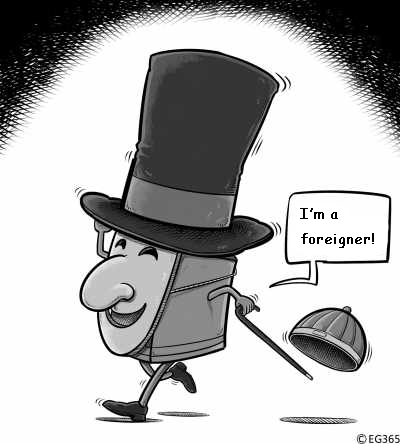(Ecns.cn)--Since the Da Vinci furniture scandal, the true colors of many "bogus foreign devils" have been exposed, referring to a large number of phony brands with registered trademarks abroad, but products manufactured and sold only in China.
Famous for high prices, one Da Vinci single bed sells for more than 100,000 yuan and a sofa set for more than 300,000 yuan. According to one salesmen, the high prices reflect Da Vinci's position as an Italian international super brand, whose furniture is produced in Italy.
Not so, according to an investigation, which showed that a large amount of Da Vinci's high priced "imported" furniture is in fact made right here in China.
High-end foreign brands in disguise
Industry insiders point out that the Da Vinci scandal is just the tip of the iceberg.
As early as the 1990s, many domestic companies began to promote their images by putting fake foreign-made labels on their products.
But many of those so-called high-end brands belong to Chinese companies that only operate in China, say insiders. For example, Kaltendin, a clothing brand registered in Italy, is in reality a company in Shenzhen of Guangdong Province, while Yarbo, a well-known "German" cable producer, only sells products in China. Few audiophiles have ever heard of it in Germany.
According to a report in the People's Daily, many small domestic companies apply to become foreign brands through agencies that provide registered addresses abroad, and even receptionists for their "foreign headquarters."
Why foreign brands?
Some argue that there is no need for Yarbo, which is known for its quality products, to register as a foreign brand. But insiders explain that with a German brand the company can pocket much higher profits – if the company's brand was Chinese, they would struggle to compete.
This is largely related to consumer psychology and immature distribution channels, say insiders.
Chinese consumers tend to worship things foreign and believe that products made abroad equal superior quality. Some people buy luxury foreign goods only to show off their wealth, noted an expert in the clothing industry.
Consumer demands have affected shopping malls, leading to a preponderance of foreign brands, many of which are often judged solely by their registered locations, added the expert.
Da Vinci Furniture put fake foreign-made labels on its domestically manufactured products to reap huge profits by catering to the immature attitudes of Chinese consumers. In this regard, buyers of the fake foreign furniture are also partially responsible for their own losses.
The popularity of foreign brands in China may also be attributed to the constant disclosure of quality flaws in domestic brands.
Li Guangdou, an expert in brand strategy, pointed out that many Chinese choose foreign brand-name products because of faulty China-made goods. Even though some imported goods are also problematic, consumers still choose them as the lesser of two evils.
Following the tainted milk scandals, where powdered milk from various Chinese factories was found to contain excessive amounts of melamine, many domestic milk producers began to disguise themselves as foreign brands in order to survive.


















